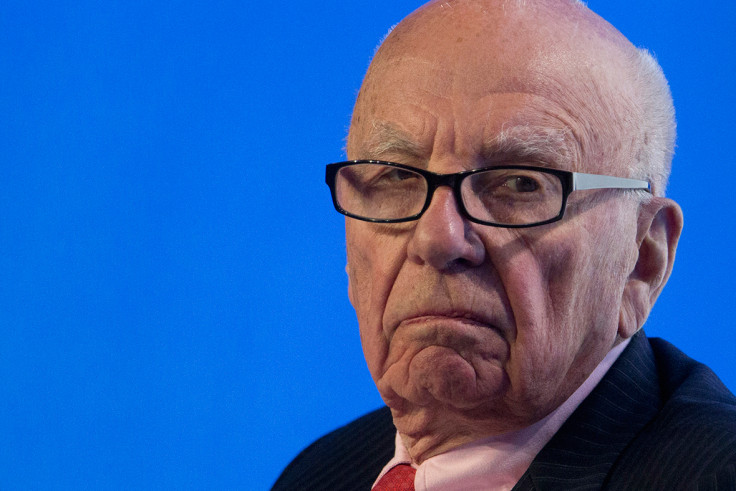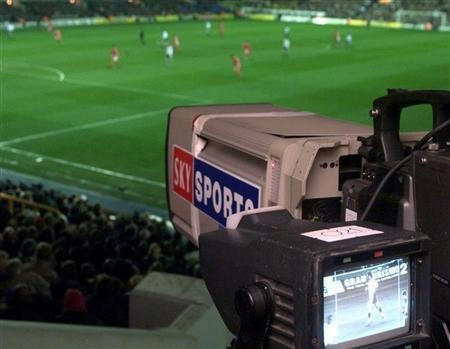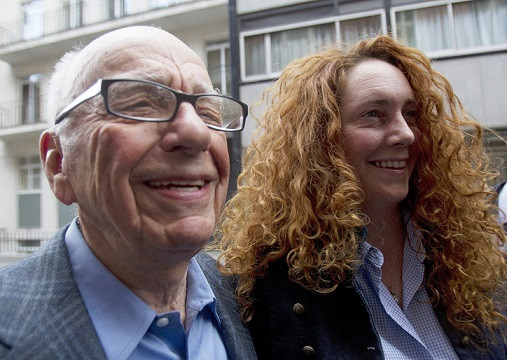Rupert Murdoch: Charting the media mogul's rise and his net worth
The Australian has built one of the largest media empire in the world, including The Sun, The Times and Fox News.

Newspaper owner, publisher, powerful media mogul. Over the last six decades, Rupert Murdoch has revolutionised the media industry, but the Melbourne-born tycoon has also been at the centre of controversy more often than not.
The British government and the FBI have both investigated the octogenarian for bribery and corruption, while his empire has ruthlessly swept opponents aside. Four years short of his 90th birthday, the media mogul remains as powerful as ever.
At a glance
• Full Name: Keith Rupert Murdoch
• Age: 86
• Place of birth: Melbourne.
• Net Worth: £31.2bn ($39.5bn)
• Marital Status: Married Jerry Hall in 2016. Hall is Murdoch's fourth wife, after Patricia Booker, Anna Torv and Wendy Deng.
• Listed on Forbes as the 90th richest person overall in the world in 2017.
Journalism in the family
Born in Melbourne in 1931, the paths of journalism and Murdoch met almost straight away. The mogul's father, Keith, was a war correspondent and would later become a regional newspaper magnate owning two newspapers in South Australia.
Having worked part-time at the Melbourne Herald, Murdoch moved to Britain, where he read philosophy, politics and economics at Worcester College in Oxford.
Taking over the family business
Aged 22, Murdoch returned home to Melbourne to take over News Limited, the family business, after his father passed away. Under his stewardship, a number of News Limited's titles, such as the Adelaide News, became a major success, prompting Murdoch to steadily expand his business.
Over the next decade, he acquired a number of Australian newspapers, developing a style that relied heavily on catchy headlines and increased the coverage of scandals and sports. Later in his career, The Economist credited Murdoch with "inventing the modern tabloid".
Building an empire
In 1968, Murdoch returned to Britain to purchase the News of the World, before snapping up The Sun 12 months later. It was the beginning of a revolution, which would see him add The Times and The Sunday Times in 1981 but which would also spark a major controversy.
In 1986, Murdoch's decision to move all its four titles into a heavily fortified printing plant saw 5,000 workers losing their job. Murdoch's alleged penchant for interfering with the editors of his publication was also thrust in the spotlight numerous times, though he always dismissed the criticism.
"I think that I give my editors tremendous freedom and the only people who claim that I don't give them enough freedom now are the people who wouldn't know how to use it," he once claimed.
The media mogul also expanded his business in the US, acquiring a number of tabloids, before mounting a takeover of 20th Century Fox in the mid-1980s. In 1986, he launched Fox Broadcasting Company, which would go on to establish itself as an industry giant, becoming the most-watched American television network in total viewership during the 2007 and 2008.
Sky and the Premier League revolution
Murdoch's TV revolution in Britain was just as momentous, beginning with the launch of Sky Television in 1989. The satellite-based broadcaster nursed heavy losses in its infancy, before a merger with sector peer British Satellite Broadcasting gave birth to BSkyB 12 months later.
In 1991, Sky secured the rights to newly-founded Premier League and it hasn't looked back since, enjoying a meteoric rise that has seen it become the UK's largest pay-TV broadcaster. However, Sky, which has since branched out in telecoms as well, has faced criticism for its monopoly and the recent emergence of BT has threatened its status.

Media and politics
As the owner some of Britain's major newspapers, Murdoch's influence on British politics has grown exponentially over the last three decades.
A strong supporter of the Conservative Party under Margaret Thatcher and John Mayor, The Sun backed Tony Blair's Labour Party, a party which Murdoch had supported during his time at Oxford, between 1997 and 2005 but has since switched allegiances again.
Both newspapers - albeit to different degrees - have firmly thrown their weight behind David Cameron and Theresa May's Tory party and, The Sun in particular, the pro-Brexit campaign.
Similarly, in the US, Murdoch's Fox News has largely been seen as the mouthpiece of the Republican Party, which the 86-year-old has aligned himself with in the past. However, unlike the British newspapers part of Murdoch's empire, the Wall Street Journal has actively called for increased legal immigration.
Through his media empire, Murdoch has also played a major role in the political scene across the Pond, in particular when News Corporation donated $1bn to the Republican Governors Association in 2012.
However, while Murdoch classifies himself as a Republican, he hosted a fundraising event for Hillary Clinton, a member of the Democratic Party, in 2006 and he also famously described former US President Barack Obama as a "rock star" he was "looking forward to meet".
Leveson Inquiry

Murdoch's relationships with British politicians was put under the spotlight during the Leveson Inquiry in 2012.
Murdoch was forced to deny ever saying: "When I go to Downing Street, they do what I say; when I go to Brussels, they take no notice."
The quote was attributed to him by Anthony Hilton of the Evening Standard and has been closely associated with the octogenarian ever since.
Murdoch described the day he, along with his son James and former News of the World editor Rebekah Brooks, was summoned to appear in front of parliamentary committee as the "most humbling day in my life".
Two days before his appearance in front of the committee, News International published two full-page apologies on a number of British newspapers for its conduct. Brooks and Les Hinton, the head of Dow Jones who was chairman of Murdoch's British newspaper division at the time, both resigned over the scandal, despite denying knowledge of any wrongdoing.
© Copyright IBTimes 2025. All rights reserved.






















